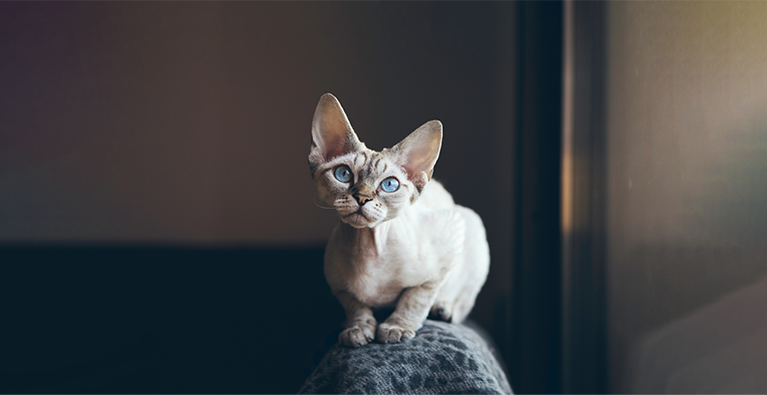Devon Rex
What makes the Devon Rex special is its fine, curly hair. Besides this, it is a very playful and affectionate breed of cat.
Profile of the Devon Rex
- Size medium
- Weight female: approx. 3 kg, male: approx. 4 kg
- Origin England
- Build slim, muscular
- Length of fur short, curly
- Colour of fur all colours
- Grooming easy
- Behaviour playful, high-spirited
- Character clever, inquisitive
Appearance and character of the Devon Rex
People who have never seen a really curly cat before will be surprised at first. Apart from its head, the entire body of the Devon Rex is characterised by its curly or wavy fur. However, this is not the outer fur (as is usually the case with cats) but the undercoat. This is extremely soft, thin and not particularly long. The breed standard allows all colours and patterns, including white. Bald patches on the coat and curly or missing whiskers are, however, not desirable. This is relevant from an animal welfare point of view, because it can involve suffering, harm and disorders that should never to be tolerated or encouraged. Most countries do not have a ban on breeding the Devon Rex, however restrictions will sometimes apply in individual cases, particularly as regards certain Devon Rex variants.
Apart from its striking coat, the large eyes and ears are a distinctive feature of the Devon Rex. Its body is medium-sized, slim and hard. The legs and tail are also long and slender. Only the breast is broad, emphasising the muscular body.
The Devon Rex has a very pleasant character. It is a “typical cat”, which on the one hand is very affectionate, and loves humans and cuddles, and on the other hand enjoys its independence and tends to do whatever it pleases. It loves to run up and down its cat tree, dashes around the flat, loves to play with its humans together and always seems to be thinking up new ways to make mischief. Some cats are even prepared to be taught tricks by their owners. There is just one thing they do not like: being left alone for long periods of time on a regular basis. If you cannot avoid this, it is best if you decide to have two cats. You will then often be able to hear them having a conversation with each other, because the Devon Rex is one of the most talkative breeds of cat.
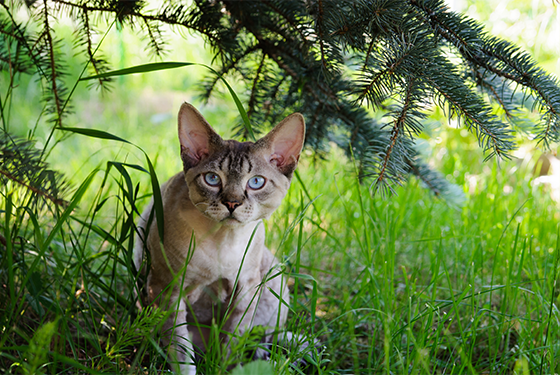
Keeping and caring for a Devon Rex cat
Having a Devon Rex as a pet is normally not at all problematic. The breed is very resistant to stress and adaptable, which is why it is also an ideal pet for families with children. Due to its unusual appearance, very few owners allow it to go outside. This doesn’t bother the Devon Rex, however you should make sure that it has plenty to do at home. A second cat can be helpful, and you should give it lots of attention and an ample supply of toys. Many Devon Rex cats also show an interest in intelligence toys.
You should keep in mind that the Devon Rex has quite a thin coat. It should therefore not be left to bask in the sun on the balcony for hours on end, because it could get a sunburn. In the winter months, on the other hand, it will need to keep warm. Blankets, a cuddly cave or a spot near the heating are all suitable for this purpose.
There is little to worry about when it comes to caring for a Devon Rex. Its coat requires virtually no grooming. It is sufficient to use a soft brush every now and then. It is important to carefully run the brush through the fur to avoid accidentally pulling out any hairs.
Nutrition
Whether it’s a kitten, an adult cat or a senior – the food for a Devon Rex cat should always be of high quality and tailored to its age. Cats are carnivores by nature, so cat food should always contain a high proportion of meaty ingredients. Sugar, flavour enhancers and artificial colourings and preservatives do not belong in the food.
animonda has the ideal food for every stage of your cat’s life. You can choose between kitten, adult and senior cat food. The products are specially formulated to meet the specific nutritional requirements of the different life stages of cats. This provides the best foundation for your pet to enjoy a long and healthy life.
Health of the Devon Rex
The Devon Rex has an average life expectancy of 15 years. Due to the limited number of these cats, breeders must make sure that there are no problems with inbreeding. These include, for example, spastic paralysis, which occasionally occurs in kittens. Gum and root infections are also known to occur. In addition, there are reports of myastenia, a muscle weakness in the hind legs. Only very rarely do skin problems occur, but it is important to remember that a Devon Rex gets cold more easily than other cats and is therefore more likely to catch a cold in chilly or draughty conditions.
History and breeding
Some breeds of cat have evolved naturally, while others have been specially created and bred by humans. The third variant is an occasional naturally occurring mutation. These include the Rex cats with their curly fur. Every now and then they will appear by chance within a litter. This is exactly what happened in the case of the Devon Rex. It all began in 1960 in the English county of Devonshire. A stray male cat had mated with a female cat belonging to a certain Beryl Cox, resulting in a litter of kittens. One of them had curly fur. Because the Cornish Rex already existed at that time, Beryl Cox contacted breeders and planned a breeding programme. When little “Kirlee” had reached breeding age, this was successfully carried out. However to everyone’s surprise, there was not a single curly-haired kitten in the litter. This led the breeders to conclude that there must have been two different mutations.
Beryl Cox decided to take the breeding programme into her own hands and carried out further pairings with British Shorthair and Burmese cats. Occasionally there were individual curly-haired cats in the litters, which she then singled out to enhance her breeding achievements. She quickly achieved success, obtaining recognition of the breed by the British Governing Council Cat Federation as early as 1967. The European governing body, FIFe, followed a year later, and then finally the American Cat Fanciers Association in 1979. The Devon Rex is now bred all over the world, but is still one of the rarer breeds of cat.
You may also like this
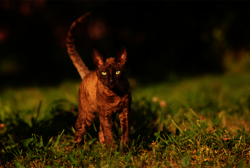
Cornish Rex
This curly-haired cat is descended from a domestic cat
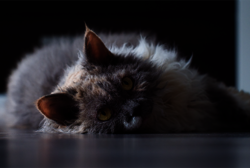
Selkirk Rex
This curly-haired breed is the result of a mutation
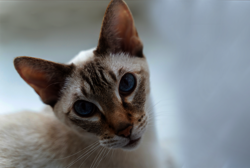
Oriental Shorthair
The Oriental Shorthair is descended from the Siamese cat
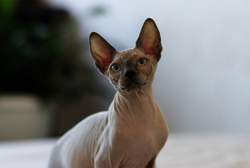
Sphynx cat
This hairless breed of cat is friendly and loves a cuddle
